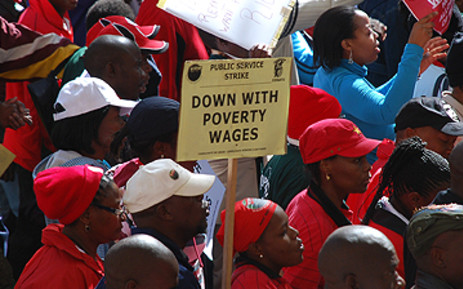GOVT MOVING AHEAD WITH PLAN TO SCRAP SOME BENEFITS FOR PUBLIC SERVANTS - COSATU
- Get link
- X
- Other Apps
Government’s proposal to labour during the latest round of wage negotiations, which deadlocked, proposes a holistic redesign of the remuneration framework among others as it turned down most of the money-related demands by public servants.

JOHANNESBURG - Government appears to be pushing ahead with its plan to explore scrapping some allowances and benefits afforded to public servants, including pay progression and the occupational specific dispensation.
Government’s proposal to labour during the latest round of wage negotiations, which deadlocked, proposes a holistic redesign of the remuneration framework among others as it turned down most of the money-related demands by public servants.
Friday’s tense talks deadlocked after organised labour raised its discontent with what they said was government’s attempts to erode workers’ hard-fought gains.
Although the government does not outright do away with the allowances in its counter-proposal that was seen by Eyewitness News, it states that according to the budget tabled in Parliament, only 1.4% has been budgeted for the wage bill to address employment growth and all other allowances and subsidies.
When this did not pass in negotiations, labour said that the employer instead suggested that all increases due for pay progressions and the other allowances be redirected to the cost-of-living adjustment which only addressed the salary increase demand.
Chairperson of the Cosatu public sector unions’ joint mandating committee, Mugwena Maluleke: "They are moving forward with the abolition of those benefits under the pretext that they want a new remuneration framework."
Labour has further rejected the 0% increase offered by government.
Following the deadlock, unions said that they will declare a dispute at the public sector coordinating bargaining council.
Download the Eyewitness News app to your iOS or Android device.
TIMELINE
Talk of 'political meeting' to end deadlocked public sector wage negotiations
a day agoOrganised labour: Govt attempting to sneak in policy matters into negotiations
a day agoDBE: Contact & noncontact sports to resume at schools but without spectators
3 days agoPSA ‘disappointed’ at govt after public sector wage talks collapse
3 days ago







Comments
Post a Comment